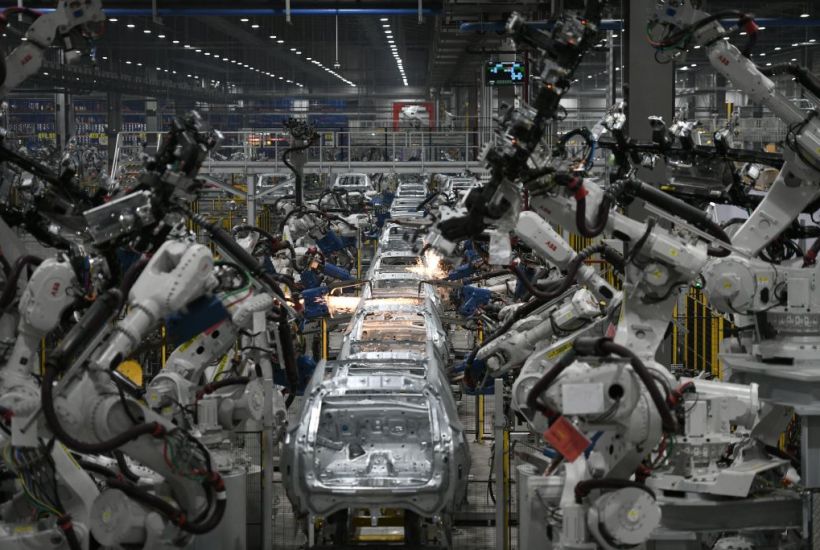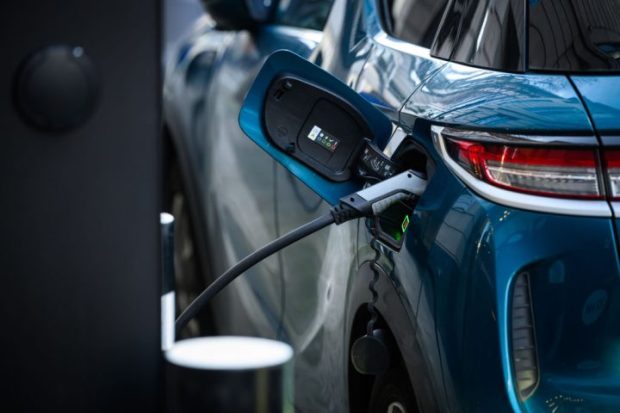A frantic round of last-minute lobbying is already underway. Officials are trying to stitch together a deal. And the Prime Minister Rishi Sunak is pushing hard to find a compromise that works for both sides. There are lots of negotiations over ‘rules of origin’ for electric vehicles that will allow Vauxhall to keep its plants open. But hold on. Although we should expect a deal to be done, as it usually is between the UK and the European Union, that should not obscure the bigger point. We are not going to be big players in EVs, and there is no point in trying to become one now.
We are not going to be big players in EVs, and there is no point in trying to become one now
‘Rules of origin’ is the kind of subject that keeps trade nerds up at night. Under EU rules, a certain percentage of a product has to be made in the right country for tariff-free access to the market. For British made electric vehicles, from next year that will be 45 per cent, rising to 55 per cent by 2027. Stellantis, the company that owns Vauxhall, Peugeot, Citroen and Fiat, has warned that it might have to close its British plants if there is no room for flexibility on that. Inevitably, the UK is trying to broker a compromise. No one wants to see car factories close down.
In reality, a deal will probably be struck. There is plenty of room for compromise, and the UK is getting on much better with the officials in Brussels right now. A few swivel-eyed Remainers would probably love to see a Vauxhall plant close down just to prove they were right about Brexit. No one else is quite that extreme. And yet, even if a deal is struck, there is a bigger point at stake. The UK would be better off getting out of the brutally competitive electric vehicle industry.
We hear constant pleas for trade deals, subsidies and strategies to establish a British presence in the industry. There are lots of lectures about how much other countries are spending, and how we risk getting left behind if we don’t match that. But, in reality, there are three big problems.
First, every country in the world is massively subsidising their production. Under President Joe Biden, the United States is deploying tens of billions on new factories, battery facilities, and grants for buying American-made electric cars. The EU is spending similar amounts, with Germany and France pouring vast sums into their industries. There is no way a relatively small economy such as the UK can keep up with that.
Next, the technology is still unproven. We don’t really know if battery-powered vehicles will be the answer to climate change everyone assumes they are. Perhaps hydrogen will emerge as a rival, or some other form of fuel.
Finally, it is already becoming clear the Chinese are about to crush everyone with cheap, well-made EVs. Most of us haven’t heard of BYD yet, but last year it overtook Tesla as the world’s largest manufacturer of EVs and it has not even launched in most countries yet (Warren Buffett is a big investor in the company). There are plenty more Chinese companies making cheap, long-range vehicles. It will be very hard for anyone to compete with that.
The UK has plenty of other industries it can concentrate on. We are strong in life sciences, in media, in professional services, and with only a small amount of effort, and by keeping regulation light, we could be strong in Artificial Intelligence. EVs are not worth the pain, or the inevitably huge losses involved.
A deal will probably be done over Vauxhall that will keep its plant open. But it is hardly make or break. We are not going to be big players in the market for battery-powered cars – and it would be better to recognise that now.
Got something to add? Join the discussion and comment below.
Get 10 issues for just $10
Subscribe to The Spectator Australia today for the next 10 magazine issues, plus full online access, for just $10.





















Comments
Don't miss out
Join the conversation with other Spectator Australia readers. Subscribe to leave a comment.
SUBSCRIBEAlready a subscriber? Log in